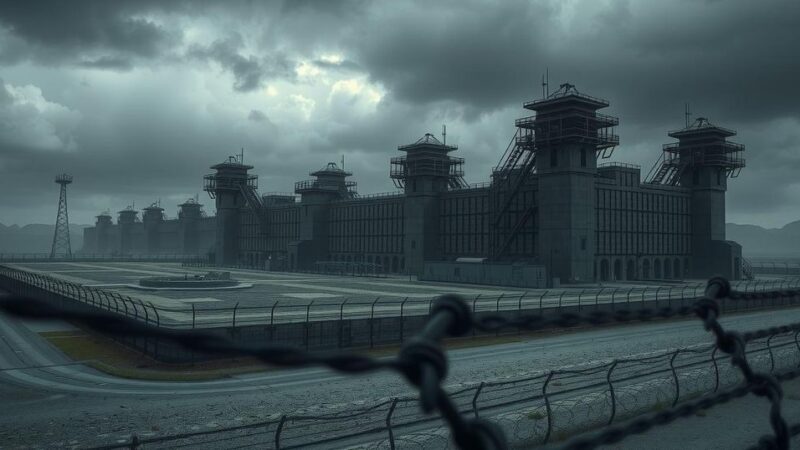The ongoing violence in Colombia’s Catatumbo region, largely attributed to clashes between the ELN and Farc, has resulted in 60 deaths, with increasing risks of abduction and violence against community leaders. Recent attacks have disrupted peace negotiations, prompting the Colombian government to dispatch additional troops to the area amidst humanitarian concerns related to food shortages and displacement. President Gustavo Petro condemned the violence, calling it a reflection of ongoing war crimes.
The recent escalation of violence in Colombia’s Catatumbo region has tragically resulted in the deaths of 60 individuals, according to the nation’s human rights office. This area, notorious for its proximity to coca production, has long been a battleground for rival factions vying for dominance in the cocaine trade. The conflict primarily involves the National Liberation Army (ELN), the largest guerrilla group remaining active in Colombia, and the Revolutionary Armed Forces of Colombia (Farc), which had previously entered into a peace treaty with the Colombian government in 2016.
The Ombudsman’s Office reported that the latest surge in violence breached a precarious truce between these factions, which had engaged in peace negotiations with the government up until now. The violence is particularly detrimental to community leaders who are at heightened risk of abduction or murder by the ELN, with reports indicating that 20 individuals had been recently kidnapped, half of whom were women.
Among the casualties, seven signatories of the peace treaty were killed; notable among them was Carmelo Guerrero, the leader of a local advocacy group known as the Association for Peasant Unity in Catatumbo (Asuncat). The organization expressed concern over the disappearance of board members Roger Quintero and Freiman Velasquez, suspected to have been taken by armed groups. Food shortages are reportedly beginning to affect the local population, revealing grave humanitarian implications for the region.
The Association of Mothers of Catatumbo for Peace lamented, “Catatumbo is once again stained with blood. The bullets exchanged not only hurt those who hold the weapons, but also tear apart the dreams of our communities, break up families and sow terror in the hearts of our children.” The Ombudsman attributed the recent violence to the ELN, which had been engaging in peace talks until these were interrupted due to the ongoing incidents.
President Gustavo Petro condemned the actions of the ELN, asserting that the group has committed war crimes and demonstrates no intention to pursue peace. In response, the ELN accused Farc of provoking the violence through civilian killings, although Farc has not acknowledged this claim. In an effort to restore order, the Colombian military has announced the deployment of additional troops to the troubled region.
Colombia has a long-standing history of violence involving armed groups as they compete for control over lucrative coca cultivation, which serves as the raw material for cocaine. The Catatumbo region, situated near the Venezuelan border, has been particularly affected by this struggle, with major groups like the ELN and Farc fighting for dominance. Despite previous attempts at peace negotiations and treaties, sporadic violence continues to destabilize the area and endanger civilian lives, particularly community leaders and vulnerable populations. The recent resurgence of violence also highlights the challenges faced by the government in maintaining peace and addressing humanitarian concerns, as food shortages and displacement affect local communities. Understanding this context is crucial to grasping the significance of the latest events in Catatumbo and their broader implications for Colombia.
The violence in Colombia’s Catatumbo region serves as a grim reminder of the ongoing struggle for control over drug trade routes, exacerbating humanitarian crises and endangering local communities. With the death toll rising to 60 and increasing threats to peace activists and civilians, the urgency for effective government intervention and resolution strategies is paramount. The conflicting claims between the ELN and Farc further complicate the situation, revealing the deep-seated issues that must be addressed to foster lasting peace in Colombia. As the military mobilizes additional troops to the region, it remains to be seen whether such actions will effectively restore stability and security for those affected by this violence.
Original Source: www.bbc.com






